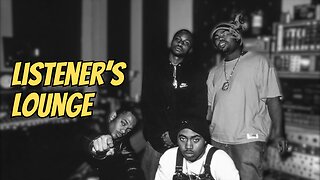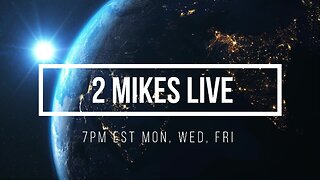Premium Only Content

Trust/What the Science? #incense #sacrifice #science
#Trumpet88 @JohnBell1958
Science [from Latin scientia from scire to know] In its widest sense formulated knowledge, a knowledge of structure, laws, and operations. The unity of human knowledge may be artificially divided into religion, philosophy, and science. Science and philosophy, as presently understood, have in common the quality of being speculative, as opposed to religion, which in the West is supposed to be founded merely on faith and moral sentiments.
The present distinction between science and philosophy lies largely in their respective fields of speculation. What is known as modern science investigates the phenomena of physical nature and by inferential reasoning formulates general laws therefrom.
Its method is called inductive and its data are so-called facts -- i.e., sensory observations; whereas deductive philosophy starts from axioms. Yet a scientist, in order to reason from his data at all, must necessarily use both induction and deduction.
Modern science has limited its field of study to the laws of physical nature; but in the 20th century the illusive and entirely phenomenal nature of matter and energy, formerly assumed to be eternal and indestructible, is better realized by scientists who have traced the chain of physical causation to a point beyond physical limits altogether and admit that the physical world consists of phenomena occurring in an ultraphysical substance.
In modern sciences dealing with biology, evolution, and anthropology, legitimate inference from facts has been much interfered with by preconceived ideas. Modern science suffers from its failure to see the necessity of postulating an astral or formative world behind the physical, this astral world being in itself but one stage in a rising scale or ladder of invisible worlds.
To ascertain the facts upon which to build a true inductive system, we must admit the existence in man of means of direct perception other than those afforded by the physical senses.
science
▶ noun
a science teacher.: See list.
the science of criminology: BRANCH OF KNOWLEDGE, body of knowledge/information, area of study, discipline, field.
Branches of Science See also engineering, geography, mathematical, medicine, psychology. marine biology
acoustics mathematics
aerodynamics mechanics
agriscience medical physics
anatomy medicine
anthropology metallurgy
astronomy meteorology
astrophysics microbiology
atomic physics mineralogy
bacteriology molecular biology
behavioural science mycology
biochemistry natural history
biology nephology
botany neurology
chemistry neuroscience
climatology nuclear chemistry
computer science nuclear physics
conchology oceanography
cosmology oncology
cryogenics ophthalmology
crystallography optics
cybernetics ornithology
cytology palaeobotany
dendrology palaeoclimatology
dynamics palaeontology
earth science palynology
ecology parasitology
economics particle physics
electrical engineering pathology
electrodynamics pedology
electronics petrology
endocrinology pharmacology
engineering photochemistry
entomology physics
epidemiology physiography
ethnology physiology
ethology phytology
evolutionary psychology phytopathology
exobiology psychiatry
fluid mechanics psychology
forensics quantum mechanics
genetic engineering radiochemistry
genetics radiology
geochemistry robotics
geochronology seismology
geography sociobiology
geology sociology
geomorphology soil science
geophysics spectroscopy
glaciology statistics
haematology stratigraphy
herpetology taxonomy
histology tectonics
holography thermodynamics
hydrodynamics toxicology
hydrology veterinary medicine
hydrostatics virology
ichthyology vulcanology
immunology zoogeography
information technology zoology
limnology zymurgy
linguistics
© Oxford University Press 1995, 2002
-
 17:33
17:33
Missouri on Neodymium
10 months agoIn My Own Way 🦆 ILLUMINATION 12/13 ☕ on a Cool Autumn Afternoon
99 -
 58:39
58:39
Flyover Conservatives
23 hours agoPorn & LGBTQ+ Agendas in Schools: What You Can Do - John Amanchukwu; 7 Key Indicators You Can't Ignore - Dr. Kirk Elliott | FOC Show
33.1K1 -
 LIVE
LIVE
Drew Hernandez
11 hours agoTRUMP RALLY WI, CNN LIES & MARK CUBAN NUKES KAMALA
1,849 watching -
 1:53:28
1:53:28
Glenn Greenwald
7 hours agoMedia Fabricates Trump’s Call For Liz Cheney’s Execution; Slate Writer Demands Usha Leave JD; Darren Beattie On 2024 & Pakistan | SYSTEM UPDATE #361
87.9K39 -
 1:12:53
1:12:53
Havoc
8 hours agoListener's Lounge - The Chat Takeover
42.1K1 -
 LIVE
LIVE
Tundra Gaming Live
9 hours ago $4.46 earnedOne More Day Of Zombies Then Back To Warthunder
618 watching -
 6:43:15
6:43:15
Right Side Broadcasting Network
2 days agoLIVE: President Trump Delivers Remarks at a Rally in Warren, MI - 11/1/24
295K26 -
 36:53
36:53
Stephen Gardner
6 hours ago🔥Col. Douglas Macgregor: Kamala's inexperience is DANGEROUS | Israel & Ukraine NEED Trump!
55.1K99 -
 4:49:22
4:49:22
Nerdrotic
9 hours ago $43.60 earnedWoke Hollywood Collapse, Agatha Farts in the Wind - Friday Night Tights 326 w/ Baggage Claim, Savvy
102K5 -
 1:46:14
1:46:14
2 MIKES LIVE
6 hours ago2 MIKES LIVE #137 with Special Guests KEVIN SHIPP, KENT HECKENLIVEY and JOHN MIRRIONE!
33.6K4